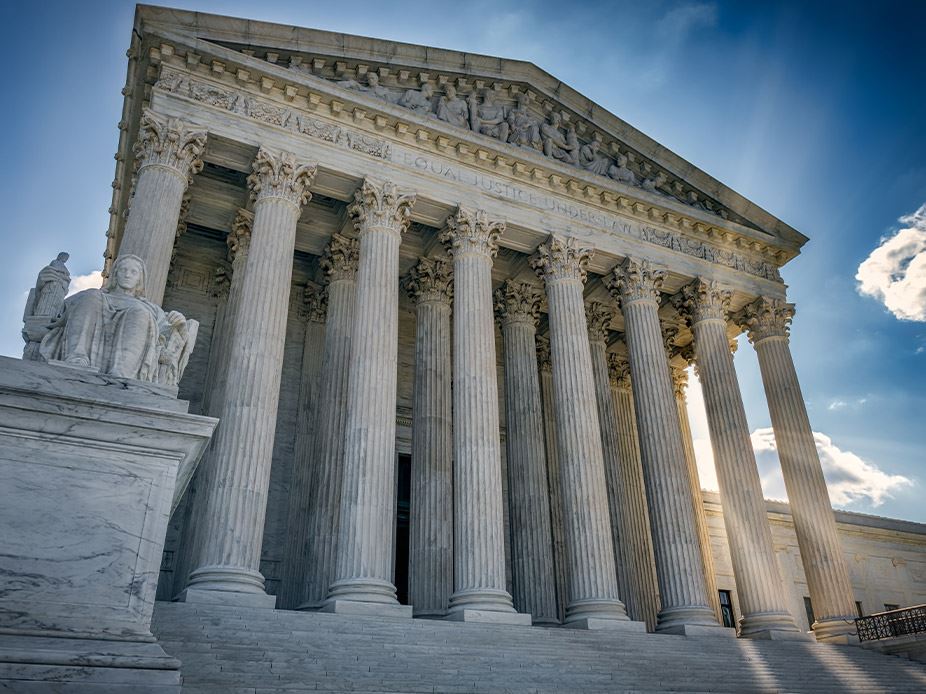On Thursday, June 8, 2023, the Supreme Court issued its opinion in Health and Hospital Corporation of Marion County v. Talevski. In a 7-2 opinion delivered by Justice Jackson, the Court held that nursing home residents hold a private right of action to initiate suits against nursing facilities receiving Medicaid funding.
In 2016, when Gorgi Talevski’s dementia progressed past a point his family was able to sustain, Mr. Talevski’s family decided to move him to Valparaiso Care and Rehabilitation's nursing home (VCR). Upon admission, Mr. Talevski could talk, feed himself, walk, and recognize his family. However, his condition quickly began to deteriorate, with Mr. Talevski losing his ability to eat and communicate in English. It was later discovered VCR was administering several psychotropic medications to Talevski, contributing to his deteriorating condition. Soon after his medication was adjusted, he began to show improvement. The Talevski family would eventually file a complaint with the Indiana State Department of Health regarding the use of these medications in Talevski’s care.
Later, after claiming that Talevski was harassing female residents and staff, VCR began sending him to a psychiatric hospital several days in a row. Eventually VCR attempted to permanently transfer Talevski to a dementia facility in Indianapolis without first notifying his family. As a result of that attempted transfer, the family filed an additional complaint against VCR and moved Talevski to another facility on a temporary basis. After the attempted transfer was nullified by an administrative law judge, the family attempted to return Mr. Talevski to VCR; however, VCR refused to readmit Talevski. Talevski’s family would ultimately decide to keep him at the facility where he was temporarily staying.
In 2019, Talevski sued VCR, American Senior Communities LLC (ASC), and Health and Hospital Corporation of Marion County (HHC) under 42 U.S.C. §1983, which grants individuals the right to sue state actors operating under color of state law. Talevski’s suit claimed that his rights as a nursing-home resident under the Federal Nursing Home Reform Act (FNHRA) were violated by the Defendants when they administered the psychotropic medications and attempted to transfer Talevski to another facility. The District Court granted HHC’s Motion to Dismiss, concluding that individuals cannot enforce FNHRA provisions by filing suit under 42 U.S.C. §1983.
However, the Court of Appeals for the Seventh Circuit reversed the District Court’s decision, holding that certain FNHRA provisions “unambiguously confer individually enforceable rights on nursing-home residents” making those rights “presumptively enforceable under section 1983.” Talevski v. Health and Hospital Corporation of Marion County, 6 F.4th 713 (7th Cir. 2021). Additionally, the Seventh Circuit opined that no provisions of the FNHRA pointed to any congressional intent to limit an individual’s right to sue under §1983 to enforce their rights contained in the FNHRA. Id. at 719. HHC filed a petition for certiorari, which was granted by the Supreme Court.
Suits filed under 42 U.S.C. §1983 can be viewed as an avenue available to individuals seeking to hold state or local government officials or entities accountable for their actions. Remedies often include injunctive relief as well as monetary damages to compensate for any harm suffered due to the violation of rights. Lawsuits filed under §1983 typically involve allegations of constitutional rights violations, and defendants typically include police officers, correctional officers, elected officials, or government agencies. Private individuals or organizations can also be sued if they conspire with government officials to violate an individual’s constitutional rights.
Writing for the majority, Justice Jackson states “any person within the jurisdiction of the United States may invoke [42 U.S.C. §1983] against any other person who, acting ‘under color of’ state law, has deprived them of ‘any rights, privileges, or immunities secured by the Constitution and laws’ of the United States.”
To determine whether a federal statute creates enforceable rights under §1983, the Court examined whether the provisions unambiguously conferred individual rights and whether Congress intended to create a federal right for the identified class of beneficiaries. The unnecessary-restraint and predischarge-notice provisions of the FNHRA were found to meet this standard, as they contained individual-centric language and focused on the rights of nursing home residents. Therefore, these rights were deemed presumptively enforceable under §1983. The Court also noted that HHC failed to demonstrate any evidence of congressional intent to preclude §1983 enforcement of the FNHRA. While the FNHRA established an administrative enforcement scheme, it did not include any provisions indicating a prohibition on §1983 actions; the Court found no sign of incompatibility or preclusion in the FNHRA's remedial scheme.
In conclusion, the Supreme Court affirmed the Seventh Circuit's decision, holding that the FNHRA provisions at issue unambiguously create enforceable rights under 42 U.S.C. §1983 and there exists no evidence of congressional intent to preclude private enforcement of these rights. This holding confirms what has long been settled precedent— the FNHRA gives individuals certain rights, and individuals are free to enforce those rights under 42 U.S.C. §1983. Should you have any questions regarding this ruling and how it may affect your organization, please contact the Airdo Werwas, LLC attorney with whom you regularly work with.


